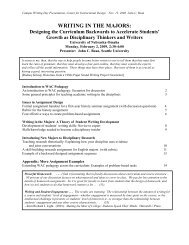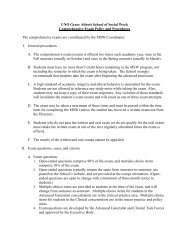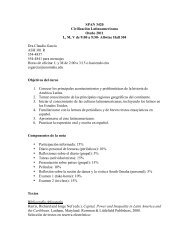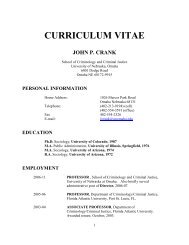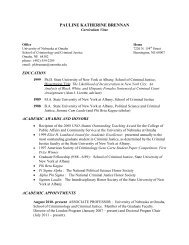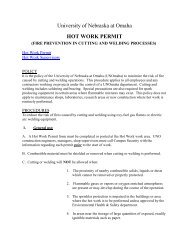Stories of Ambition and Guilt: Five Character Types in Dostoevsky's ...
Stories of Ambition and Guilt: Five Character Types in Dostoevsky's ...
Stories of Ambition and Guilt: Five Character Types in Dostoevsky's ...
You also want an ePaper? Increase the reach of your titles
YUMPU automatically turns print PDFs into web optimized ePapers that Google loves.
2 <br />
The Parent<br />
The first <strong>of</strong> the five types to consider is the dot<strong>in</strong>g parent. In Crime <strong>and</strong> Punishment,<br />
Raskolnikov’s parent figure is his mother, Pulkheria Alex<strong>and</strong>rovna, while <strong>in</strong> Great Expectations<br />
Pip, an orphan, has his stepfather, Joe Gargery. Both <strong>of</strong> these characters show love <strong>and</strong> devotion<br />
to the protagonists to the po<strong>in</strong>t that they <strong>of</strong>ten appear silly or overly sentimental, <strong>and</strong> are<br />
portrayed as be<strong>in</strong>g simple-m<strong>in</strong>ded <strong>and</strong> unable to underst<strong>and</strong> the goals <strong>and</strong> desires that motivate<br />
their children. It is <strong>in</strong>terest<strong>in</strong>g to notice that, despite these similarities, Pulkheria Alex<strong>and</strong>rovna<br />
<strong>and</strong> Joe meet very different ends <strong>in</strong> the novels, one dy<strong>in</strong>g <strong>of</strong> grief <strong>and</strong> the other marry<strong>in</strong>g a<br />
second time <strong>and</strong> liv<strong>in</strong>g happily ever after. These contrast<strong>in</strong>g end<strong>in</strong>gs most likely result from a<br />
subtle difference <strong>in</strong> the way the two parents deal with their <strong>in</strong>st<strong>in</strong>ctive sense <strong>of</strong> forebod<strong>in</strong>g when<br />
they realize that their son’s choices are separat<strong>in</strong>g him from the family.<br />
Pulkheria Alex<strong>and</strong>rovna beg<strong>in</strong>s to develop this sense the first time she physically enters<br />
the novel <strong>and</strong> visits Raskolnikov, who has just committed murder. She doesn’t know about the<br />
crime <strong>and</strong> is overjoyed at the prospect <strong>of</strong> see<strong>in</strong>g her son, but almost as soon as he walks <strong>in</strong>to the<br />
room (<strong>and</strong> fa<strong>in</strong>ts), she becomes uneasy <strong>and</strong> “preoccupied with anxiety.” 3 On the surface, this is<br />
merely because <strong>of</strong> his strange illness—but the illness really only gives Pulkheria Alex<strong>and</strong>rovna<br />
an excuse, someth<strong>in</strong>g to attribute Raskolnikov’s strange behavior to <strong>in</strong> the first moments she sees<br />
him. Raskolnikov tells her to leave <strong>and</strong> moans, “I can’t st<strong>and</strong> this…don’t torture me!” 4<br />
But<br />
Pulkheria Alex<strong>and</strong>rovna mistakes her sense that his words mean someth<strong>in</strong>g bigger is wrong for<br />
just concern over his delirious rav<strong>in</strong>g. This is the pattern that she will follow throughout the<br />
story: terrified at the conclusion her <strong>in</strong>st<strong>in</strong>cts would force her to draw about Raskolnikov’s<br />
character, she tries to conv<strong>in</strong>ce herself that she is only worried about trifles <strong>and</strong> that she suspects<br />
noth<strong>in</strong>g deeper or more serious. She lies to herself <strong>and</strong> acts accord<strong>in</strong>gly, pretend<strong>in</strong>g to everyone,







